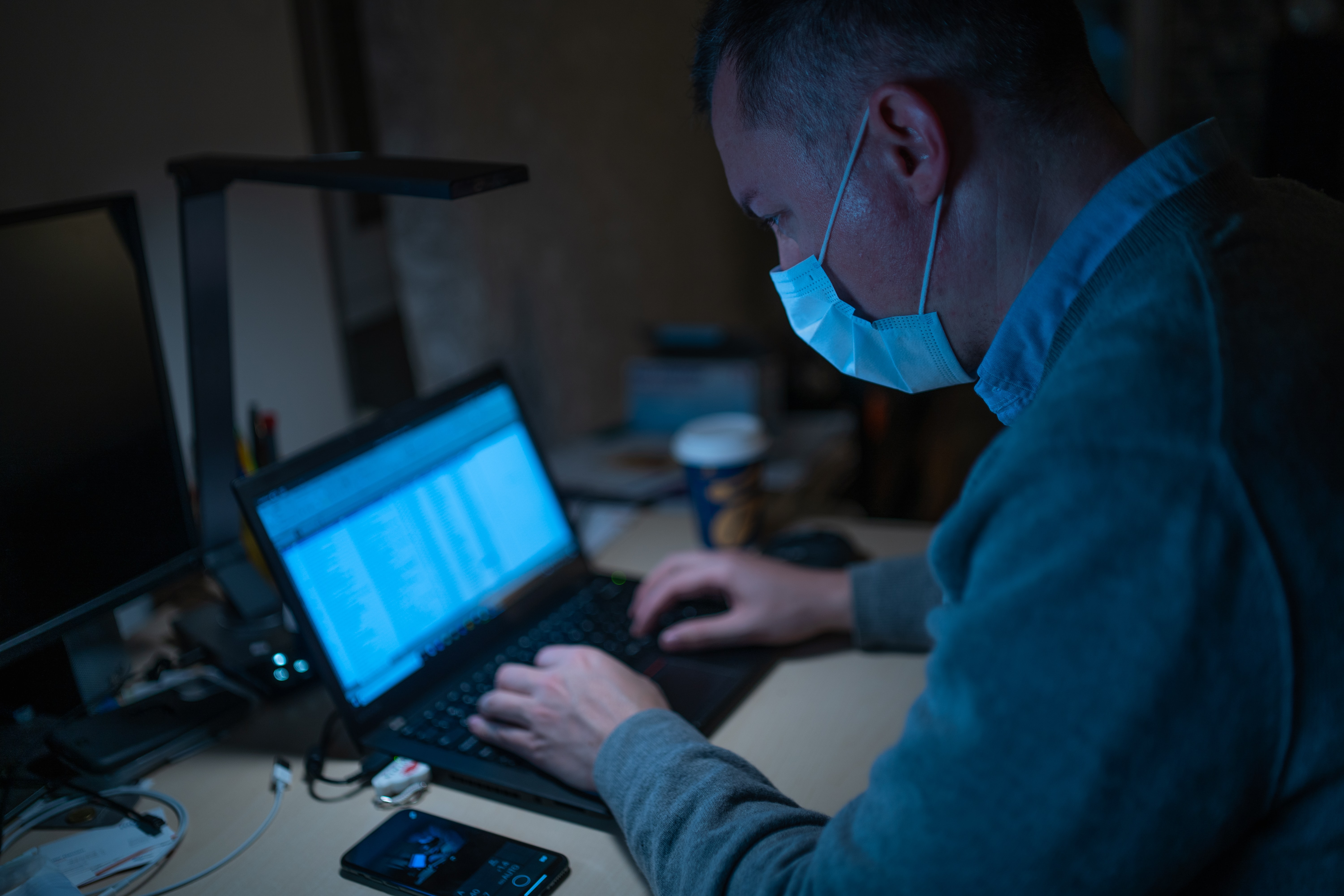You should probably be more worried about COVID-19 infecting your devices rather than your body. Hackers are using fear of the virus as a way to trick people desperate for more information into clicking on phishing emails and other scams. Here's how to protect yourself, and hint: It doesn't involve hand sanitizer. The Department of Homeland Security has shared a list of tips from the Cyber and Infrastructure Security Agency (CISA) that will help you protect yourself from a different kind of infection in the wake of this panic.
Yes, you should be concerned about your health and the health of others, but that goes for regular life too. Everyone knows: wash your hands, don't touch your face, and cover your mouth when you cough or sneeze. Also, stay home if you have flu-like symptoms. However, not a lot of people know how to protect their devices from cyberattacks. Hackers are using that fact and Coronavirus fears to their advantage.
Use Legitimate Sources
Sources that use fear-inducing verbiage aren't trying to help you. They're trying to get clicks so they can get paid. Even if it seems trustworthy, stick with sources that have reputations for pushing verifiable facts. For reliable information about the current status of Coronavirus (SARS-CoV-2 or COVID-19) and to get health and safety tips, we suggest visiting the Centers for Disease Control and Prevention website at https://www.cdc.gov/coronavirus/2019-ncov/summary.html.
Don't Take the Bait
Phishing is the number one cyberattack that hackers will try to use on you. They can make any email look legitimate, so you have to take extra care in examining any emails you receive. We advise that you don't click on any links unless you're sure it's from a reputable sender. The same also goes for any email attachments. Just opening it once can give a hacker complete control of your system. Be on the lookout for odd sentence structure or spelling errors as that could equal a suspicious email.
Avoid Revealing Too Much
Whether you are representing an organization or just yourself, never give away information to sources you haven't verified. Be aware, no one who legitimately needs to verify your personal information will do it over email, text message, or IM. If you need to provide account information, never do it in a message format. Either schedule a phone call, an in-person meeting or arrange a videoconference instead.
Verify That Charity
Hackers will do anything to achieve their goal of scamming you, even impersonating a charity. Hackers will manipulate your emotions and take advantage of your good nature. They'll use every trick in the book. Be on the lookout because even websites that look official can be the product of a malicious scheme.
Conclusion
Although CISA announced these tips as a response to hackers taking advantage of Coronavirus fears, they are important to keep in mind year-round. Cybercriminals are always plotting even when there isn’t mass hysteria.
Written by Elizabeth Dasenbrock
Elizabeth Dasenbrock is a marketer/graphic designer whose mission has always been to creatively express stories and ideas. Her skill set allows her to convey concepts to particular audiences in a visually appealing way. At TechGuard, she works on the marketing team with a focus on graphic design. In her free time, she can usually be found working on personal creative projects, tending to her houseplants, or spending time with friends and family.





